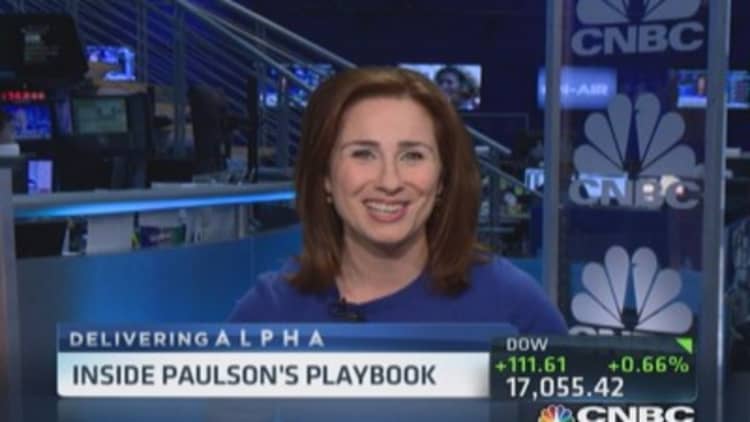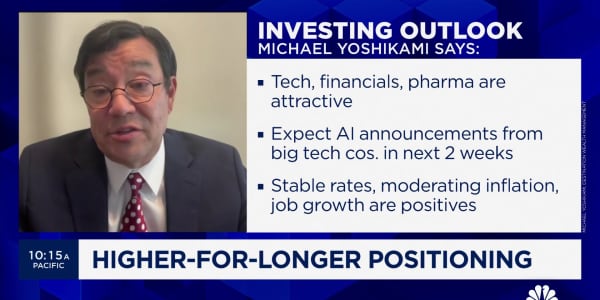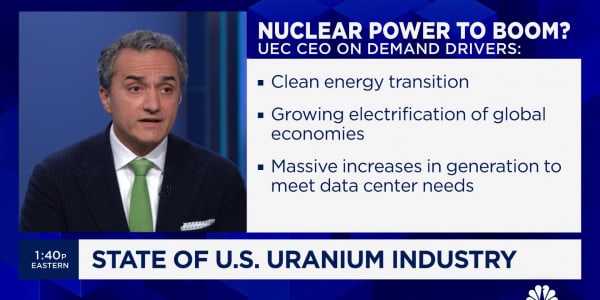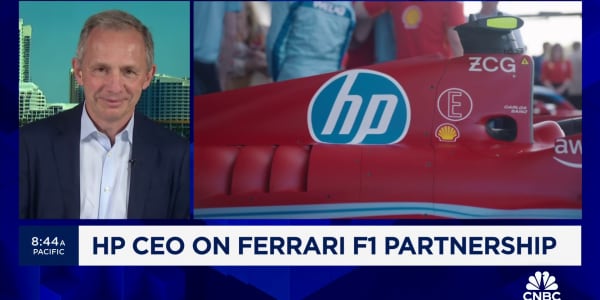
Billionaire investor John Paulson correctly anticipated merger activity in the energy sector, making him one of the big winners of Whiting Petroleum's purchase of Kodiak Oil & Gas.
Paulson & Co. owns both stocks, netting the hedge fund firm an estimated paper profit of about $360 million or a total return of 41 percent, according to CNBC calculations using public filings and share prices.
The New York-based investment firm, which manages roughly $23 billion overall, declined to comment on the gain, but gave this statement on the deal: "This is an exciting transaction. It creates the top producer in the fast growing oil producing Bakken region of North Dakota."
Read MoreKodiak got bought. Who else may be a target?
Paulson & Co. was the largest stock holder of Kodiak as of March 31, with nearly 10 percent, or 25,986,500 shares, according to public disclosures. The firm bought in around $9 a share on average over the last year. Kodiak shares also jumped on the news Monday to nearly $15, up from a close of $14.2 Friday. Overall, Paulson made an estimated profit of approximately $150 million on a $237 million investment in Kodiak, a 63 percent return.
The hedge fund started buying Whiting in the third quarter of 2013, when the stock had an average price of around $53 a share. It added to the position, ultimately accumulating nearly $800 million worth of the stock, or 9,447,200 shares. In all, Paulson made a profit of about $210 million in Whiting on an investment of about $640 million. That represents a total return of approximately 33 percent.
Read MoreA year of winners (and losers) post-'Alpha'
Paulson predicted such a deal.
"The one area where I'm expecting much more M&A activity is the oil and gas industry, specifically in the U.S.. Many companies are performing extremely well but are trading at low multiples," he told The Wall Street Journal in February. "There are many independent companies out there that are attractive. I could see a larger independent producer buying a smaller one, or a large company that's looking to replace reserves could acquire faster-growing producers. The buyers could be U.S. or global corporations."
Paulson invests more of its money in merger strategies than any other, about $8 billion as of June 1. The Paulson International offshore fund, which follows the strategy, is up 6.58 percent net of fees through June after gained 3.21 percent last month, according to a person familiar with the performance. The Paulson Enhanced fund, which places similar bets using more leverage, is up 11.8 percent for the year and was up 6 percent in June.







